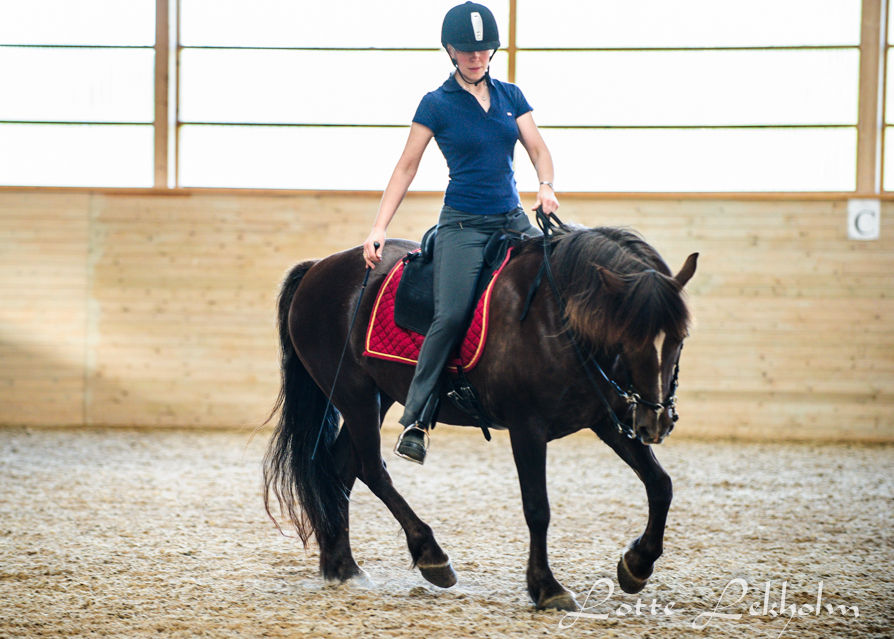Today I am thinking about the polarized world of horses, how often we consider it is ”we” against ”them”. How ”we” do it right and ”they” have no clue. I was discussing this topic about bit or bitless riding some days ago, but today I would like to go into the topic of Academic Art of Riding.
When I first entered the world of AAoR I really felt like coming home. This was exactly what I wanted to do and the philosophy appealed to me. It was not just pulling reins and kicking legs, but really a partnership with the horse. I still feel this, AAoR is my true passion in life and I want to learn as much as possible about horses and riding. I want to understand every little detail and all the techniques out there and improve my feeling and sensation of the horse, whether under me or next to me. Yes, I know I am on a lifelong quest…
When I finally managed to start with AAoR and then got my first horse, it did not take long time until I thought that everyone should do AAoR. It was the only ”right” way for me. I was tired of the ”normal” dressage with a lot of pulling, kicking and harsh behaviour and I wanted everyone else to see what I saw. It was really a feeling of ”we”, the enlightend ones doing AAoR against the ”enemy”, the normal dressage riders that just didn’t get it, and almost were abusing their animals.

But do you know something? There is good and bad dressage regardless if you are a normal dressage rider, doing AAoR, riding classical dressage or whatever school you feel you belong to. As time has gone by, I did not only develop my horse training skills, but also my mind. I am now open to good training whatever school it claims to belong to. That does not mean I change all of my system as soon as I see something new, but as the scientist I am one of the approaches I take to horses is scientific. Just like when I do research I collect little pieces and put them together to get the bigger picture, or vice versa, I demolish the big picture into small pieces to see how they all fit together. My aim is to learn how to better ride and train horses and students, and any detail that fit into my way of doing so is eventually added and used, regardless of its source.
I do believe that if we just try to enlighten ourselves and see different kinds of training and the good of it, we will benefit of it and stop looking at other riders as ”them”, but instead ”us”, the horse lovers. I also know that the ability of doing so is also very much depending on our own stage of maturity. You cannot force yourself to appreciate ”them” if you are not there, but maybe you will later in life. And of course it goes without saying, that no matter how open you are to other approaches to horses, you do not need to comply with them all.